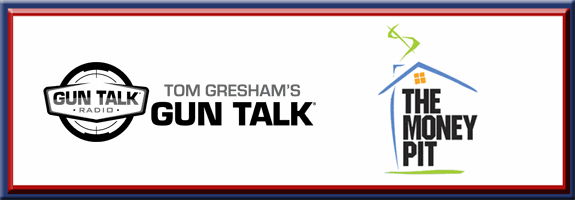By Holland Cooke
Consultant
 BLOCK ISLAND, RI — Weekend ask-the-expert shows exploit the most proven concept in marketing: free samples.
BLOCK ISLAND, RI — Weekend ask-the-expert shows exploit the most proven concept in marketing: free samples.
Common example: The lawyer is in, the meter is off. Q+A about callers’ situations is relatable to other listeners. And hearing the attorney’s approachable manner, prospective clients come to know him or her better than others whose look-alike billboards and boastful TV commercials all blur together.
Done well, these shows can grow all sorts of service businesses. Financial planners and veterinarians are Saturday/Sunday fare on many talk stations. Home Improvement is huge, as is gardening/landscaping (seasonal in some regions). The EXTERMINATOR on WPRO-AM, Providence is a rock star.
New Business Development is a big numbers game
The more prospects you lead into the sales funnel, the more you will convert to clients and customers. So the more callers, the better:
- Issues they raise reflect marketplace demand. Callers’ comments articulate concerns – and can beget specific phrases – which inform hosts’ marketing and closing technique.
- And one-caller-after-another makes the host sound pre-eminent.
- High call count benefits the station too, by making it sound popular. A solid show becomes appointment listening which helps the station’s ratings. Conversely, poorly executed pay-for-play weekend shows measurably harm Monday tune-in.
Weekend Warriors: Your station probably isn’t promoting your show properly
Because it is in nobody’s interest for your show to be a well-kept secret, I tell weekenders I coach to insist that the station promote the weekend show during the week. How?
Often, brokered weekend airtime deals include either/both:
- Commercials for your business, which is redundant, like printing the word “banana” on the yellow peel. The advice you dispense in your show is better than a commercial.
- Commercials for other station advertisers, a helpful bathroom break for the host. But that hour you’re paying for is less than 60 minutes, because it includes other advertisers’ messages.
Better Return-On-Investment: Swap in-show commercial inventory for weekday exposure, 60-second spots, which sound like informative features rather than a pitch. What’s really moved the needle for weekend shows I work with is “snack-size” advice, storytelling that invites weekend listening AND web traffic AND calls/visits to your business.
Two magic words…
For attorneys: Your out-of-program sweet spot is Mondays, the beginning of the week during-which you offer those no-cost, no-obligation consultations. Tell the station rep you want “Monday verticals” (spots which air throughout the day). And specify “6A to 7P.” If the station balks at 6A-7P Mondays, fallback counter is 6A-7P Mondays and Tuesdays.
If you are, for instance, a landscaper, or some other business that invites a free assessment listeners may accept over the weekend, later in the week is timely, and tees-up your weekend show just yonder.
“May I call you on Monday?”
Do a solid show, and even before you can invite them to, callers will ask. Technique is everything, so weekend hosts who are not career broadcasters should seek coaching, for tricks-of-the-trade. In olden times, single-station program directors did aircheck meetings. ‘Seems quaint now. I’m at 401-330-6868.
Holland Cooke is author of the E-book “Multiply Your Podcast Subscribers, Without Buying Clicks,” available exclusively from Talkers books and “Spot-On: Commercial Copy Points That Earned The Benjamins,” a FREE download here. HC is a consultant working at the intersection of broadcasting and the Internet. And he hosts “The Big Picture” TV show Friday nights at 7ET on RT America. Follow him on Twitter @HollandCooke



